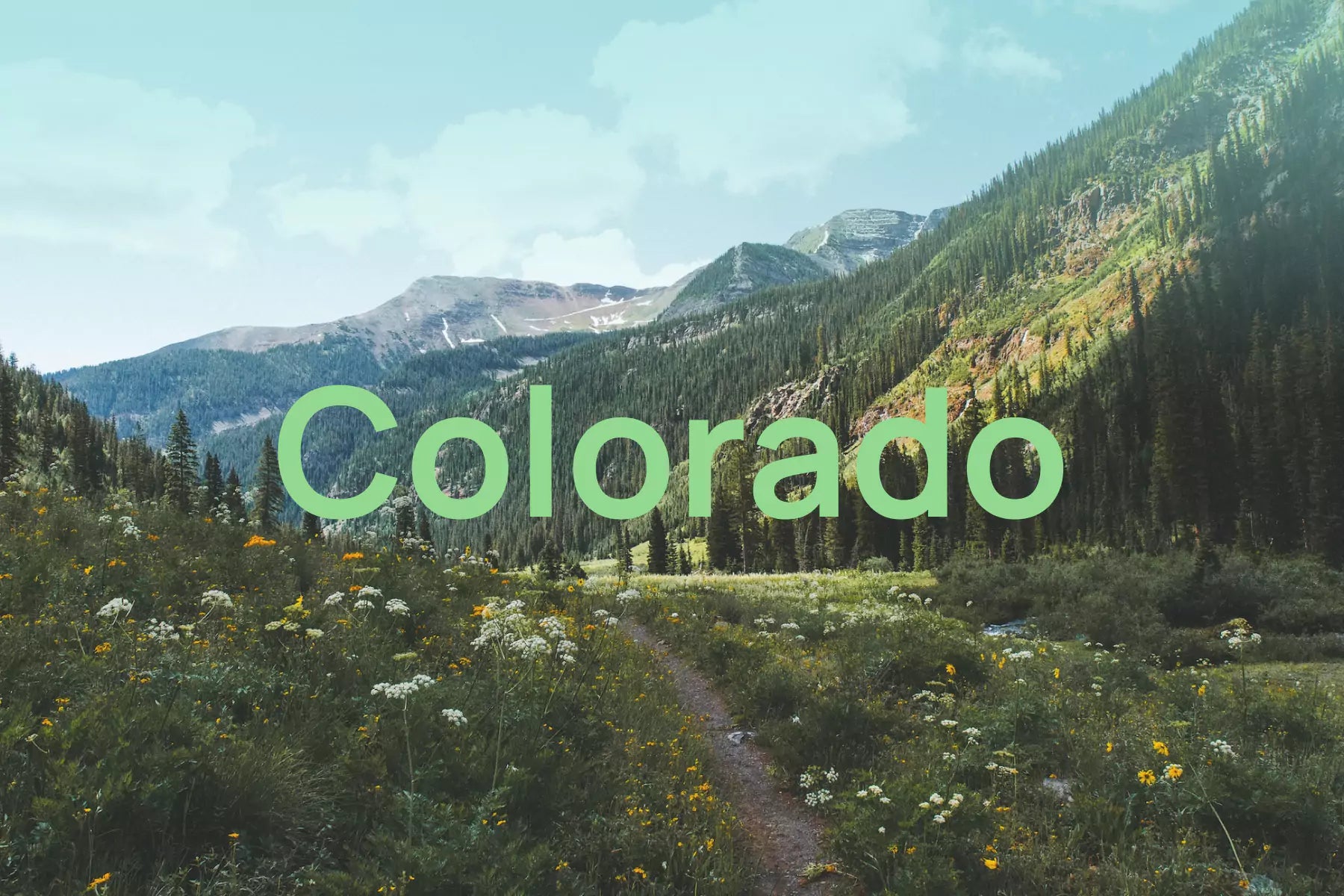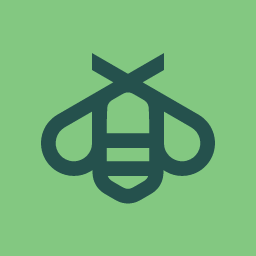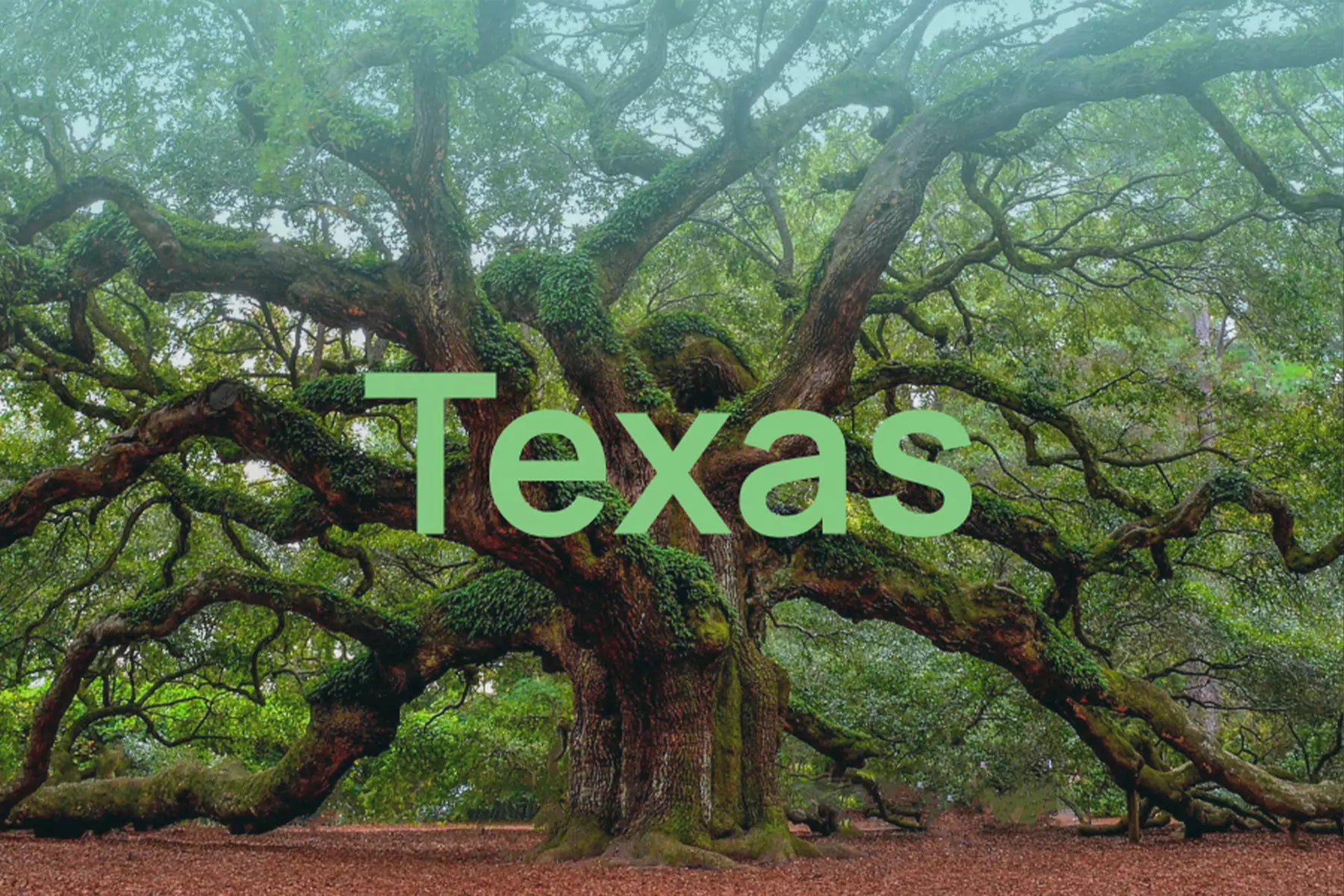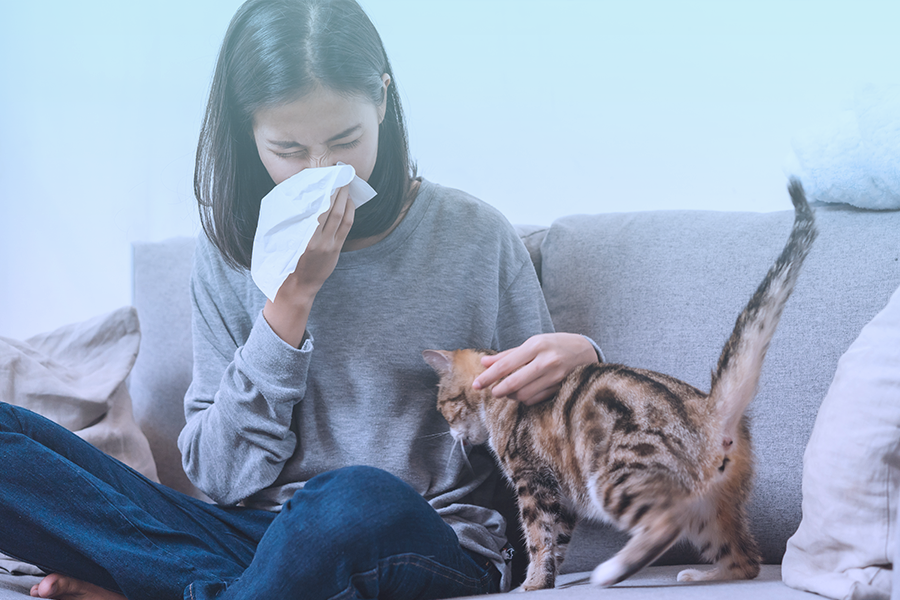Breathe Freely

How To Overcome Colorado Allergy Season
Here we are again. When sneezing, runny noses, and watery eyes seem to become a mainstay of daily living. Fortunately, they don’t have to be! With proper preventative and treatment measures, you can start feeling better before the next Colorado allergy season.
If you’re like 60 million other Americans, you know what yearly allergies are all about. You feel congested and icky. Your eyes get itchy, your skin feels funky, and all you want is to relax in bed and have it all go away. From shifting weather to climate change and industrial pollution, Colorado allergy season has many ways to get you down.
Fortunately, our specialists at Quello can bring you back up! With personalized sublingual allergy drops, you can ease and overcome those pesky environmental allergies once and for all.
Let’s explore everything you need to know about Colorado seasonal allergies and what you can do to beat them!
What Is Colorado Allergy Season?
First thing’s first. What exactly is “allergy season” in Colorado? While you’ve undoubtedly heard the term bandied about, what exactly does it mean? Why are some months and periods more problematic, whereas other times of the year barely cause issues? How come some people have problems during the colder months while others are feeling miserable during spring and summer?
What Causes Colorado’s Seasonal Allergies?
If you’re wondering what causes allergies in Colorado, it often comes down to a critical process in plant reproduction, pollination. Produced by flowers, this powdery, lightweight pollen can travel far and wide. Some people are susceptible to it on their skin, whereas others show symptoms after pollen has entered their nose, eyes, or mouth.
Across the U.S., tree pollination signals the first onset of allergies, followed by grass pollination in late spring and weed pollen from August to October.
When Does Colorado Allergy Season Start?
Although seasonal allergies typically reach their worst during the spring and summer months, allergens never fully disappear. Whether it’s pollen, ragweed, mold, dander, or anything else, certain sensitives can make your symptoms go from mild to severe, real fast.
There are also indoor allergies that include dust mites, mold, cockroach and pet dander. During the colder Colorado winter months, when we’re all inside with the windows closed, these allergens can make it feel like Spring in December!
In regards to the outdoors, Colorado’s allergy season is different from that of other states. Starting in February, the Colorado allergy season becomes more noticeable in April, with various allergens triggering more serious allergic reactions. By the end of September, the worst of Colorado seasonal allergies have usually ended.
However, that is all dependent on the specific allergens we’re talking about.
Which Allergens Are The Worst During Colorado Allergy Season?
It all varies based on your specific sensitivities, your lifestyle, the time of the year, and many other factors. With 33% of adults and 25% of children experiencing seasonal allergies in the U.S., symptoms can surface year-round. That said, there are certainly peak periods where seasonal Colorado allergens trigger the most symptoms.
Colorado’s Most Common Seasonal Allergies
For example, Colorado weed pollen is at its worst toward the end of the summer and the beginning of fall. You can expect to notice weed allergies anywhere from August to October. Meanwhile, tree pollen is typically at its worst from April to June, whereas pollen from grass causes the most allergies in May, June, and July.
Why Is Pollen So Prevalent In Colorado Allergy Season?
The most abundant allergen across the planet, pollen can affect anyone and everyone. Although most common during the warm months, pollen in Colorado can be stirred up during off-season times for various reasons. Because pollen grains are light, wind and rain can release them into the air, spreading them across vast distances.
When it comes to allergies during - and outside of - Colorado allergy season, pollen is a common culprit! Recent data trends indicate a significant increase in seasonal allergies in Colorado and around the world. Although the exact reasons may vary, specialists contend that upticks in pollution, shifting plant and tree species, and climate change may be to blame.
The Top Seasonal Allergens In Colorado’s Allergy Season
When we speak of seasonal allergies, that is a very broad and sometimes vague term. After all, there are countless plant species across the country, and within the state of Colorado alone. If you’re suffering due to seasonal Colorado allergens, you should consider the following sources:
- Sagebrush
- Ragweed
- Tumbleweed
- Pigweed
- Russian thistle
- Elm tree
- Aspen tree
- Juniper tree
- Cedar tree
These are just a small sampling of the numerous potential causes of your allergies. We must remember that pollen allergies in Colorado are only part of the problem for some allergy sufferers. When it comes to environmental allergens, we must additionally consider the role of dust mites, mold, pet dander, cockroaches, and other irritants.
Although we don’t always think of these Colorado allergens as “seasonal” like we do pollen, they certainly have their peak periods and months. Not to mention, they can cause serious allergy fatigue just like pollinated plants!
How Do Colorado Seasonal Allergies Rank Among Other States?
For Colorado seasonal allergy sufferers, there is good news. The Asthma and Allergy Foundation of America recognizes Colorado as one of the most allergy-friendly states in the country, with Denver ranking as the third-best city for seasonal allergies.
If you’re prone to sneezing, coughing, runny nose, headaches, and fatigue during allergy season, Colorado may be the perfect spot for you to live!
Why Is Colorado Allergy Season Mild Compared to Others?
The main reason Colorado’s allergy season is relatively mild is its climate. With a notably dry climate, Colorado isn’t an ideal environment for little buggers like dust mites or nasty fungi like mold. Moreover, the colder winters of Colorado largely prevent allergies from becoming a problem. You’re less likely to have allergic reactions and recurring symptoms during Colorado’s winter season than you would, say, in a Southeastern state such as Florida.
Is There a Colorado Allergy Season During The Winter?
The answer is yes, but it’s not what you might expect.
While seasonal allergies in Colorado are usually associated with tree pollen in the spring, grass pollen in the summer, and weed pollen in late summer/early fall, there are also allergens lurking in the winter.
Just think about your average winter day. In climates, such as Colorado’s, where it can get quite cold and snowy, most people are spending time indoors. With windows and doors closed and a lack of Vitamin D from sunlight, our immune systems are exposed to confined spaces. In other words, pet dander, mold, dust mites, and yes, even disgusting cockroaches, can become an issue.
Moreover, common heating methods such as furnaces and stoves may further trouble your breathing and smell. Although not typically associated with the so-called Colorado allergy season, the winter months can pose their own host of issues!
How To Limit Exposure - And Reduce Symptoms - During The Colorado Allergy Season
If all this talk of allergens and allergies is getting you lightheaded, don’t worry. There are numerous ways to reduce your vulnerability by simply changing your daily habits and tweaking your lifestyle. You don’t need to completely overhaul the way you live year-round in Colorado. You simply need to incorporate some common-sense steps to safeguard against allergens.
With the right, consistent approach, you can prevent those nasty allergic reactions and unlock your allergy-free life once and for all.
Best Ways to Defend Against Colorado Seasonal Allergies Naturally
While there are many medications, procedures, and surgical options for treating allergies, the first thing you should do is change your habits naturally. While adjusting your day-to-day routine is not a bulletproof way to ward off Colorado's allergens and allergies, it can certainly help!
Let’s dive into some of the most convenient ways to prevent serious allergy overload.
Clean Your Car
This one sounds obvious, but many people forget to do regular upkeep of their vehicles. Do you have half-eaten food or drinks scattered about your vehicle? Is your AC or heat broken or malfunctioning? When was the last time you thoroughly cleaned your car’s interior?
Consider using disinfecting wipes, leather cleaner, or a nice sponge to scrub the inside. Clean out any garbage or tracked dirt and mud, and get your vehicle interior looking brand new!
And don’t forget, when the Colorado pollen counts are high, you should always completely close your windows and doors. A good car wash will help you get residue off the outside of your vehicle as well.
Clean Your Home
This one is a no-brainer as well, but one of those things that sounds so obvious, that many people overlook it. Following the COVID-19 pandemic, many of us are somewhat conditioned to spend more time at home, whether it be for a remote job or just in general.
However, because we’re spending more time indoors, we’re accumulating more germs, allergens, and waste. If you have pets, this increased exposure to dander may start to cause some issues. It’s a good idea to perform regular maintenance throughout your home.
From vacuuming to washing with hot water, switching out air filters every six months, purifying the air, and closing windows on peak-pollen days, there are many things you can do to curb Colorado allergy issues. Regular cleaning also gets rid of insects and pests, which trigger immune reactions in many people. Should you still suffer from environmental allergies related to pest infestations, it might be time to call an exterminator!
DIY Allergy Remedies
Colorado is a state known for its beautiful wilderness, flush with all kinds of vegetation and wildlife. Unfortunately, these wondrous spectacles also come at a price, contributing to all kinds of uncomfortable symptoms during Colorado allergy season.
If keeping your car and home clean, and avoiding the outdoors on high-pollen days, is not working for you, it might be time to introduce some at-home remedies.
Try the following:
- Saline Solutions For Your Nose
- Steam Inhalation For Your Nose
- Warm Compresses For Your Face
- Humidifiers for Homes With Dry Air
Just be careful that you keep all of these items clean. In some cases, humidifiers may actually contribute to the dust and mold. Be careful about the cleanliness of the device and the moisture content of the air.
If you’re still experiencing Colorado seasonal allergies, indoors or outdoors, it’s time to pinpoint the problem. With a free at home allergy test, you can determine the exact cause of your allergies. At Quello, our simple, convenient, and accurate at home allergy tests make treating your particular sensitivities a breeze!
Say Goodbye to Colorado Seasonal Allergies!
So what are you waiting for? Don’t let Colorado’s seasonal allergies hold you back from living your best life. At Quello, our allergy specialists know what it’s like to feel yucky, burdened by recurring symptoms that never seem to go away. That’s why we create effective, personalized allergy drops just for you!
Crafted in Colorado, our medical practice understands this amazing state better than most. With our specific allergen-targeted drops, you can begin to manage and improve your allergies right away. With allergy shots, however, you spend week after exhausting week in clinical visits. You only get answers when you’re in person, and the injections - aside from hurting - can actually exacerbate your symptoms!
Ready to enjoy our 100% Do-It-From-Home, Side-Effect-Free, Symptom-Relieving drops?
First, we need to learn a little about you. Conduct your FREE in-home allergy test today in just minutes! We’ll send you the test kit, you send us back the sample, and we’ll have an allergy drop formulation perfect for your sensitivities in no time.

FAQ
What Is the Colorado Allergy Season?
The “Colorado Allergy Season” generally lasts from February to early October, although these periods can vary depending on environmental factors and the allergens in question. You can typically expect your Colorado allergies to become more severe around April.
How Do I Know If I Have Colorado Seasonal Allergies?
Colorado seasonal allergies manifest symptoms in many ways. Typically, allergic reactions may appear as coughing, sneezing, runny nose, itchy and watery eyes, headaches, and fatigue. The only way to know for certain if you’re experiencing Colorado allergies is with an allergy test.
Which Allergies Are Most Severe During Colorado Allergy Season?
This all depends on your immune system, climate factors, environmental exposures, and even recent weather patterns. The peak seasons for tree, grass, and weed pollen range from April all the way to October. If you are unsure about your sensitivity, an at home allergy test can help determine your specific allergies. Once your blood sample is sent to a lab, you may receive allergen-specific drops tailored to your unique needs.
What Is the At-Home Allergy Test For?
At Quello, we provide a FREE DIY allergy test kit. When you receive your kit in the mail, you have everything you need to test. Simply follow the directions and deliver your blood sample. Fill out the submission card with contact details and return the sample and card in the pre-labeled envelope. Once we’ve received your sample, we analyze your blood for antibodies to determine the exact allergen(s) causing your issues. From there, we craft allergy drops specific to your needs.
What Are Allergy Drops and Do They Work?
Yes, sublingual allergy drops are proven to work for environmental allergies, indoors and outdoors. Our proprietary immunotherapy drops are administered under your tongue daily to introduce safe and effective amounts of antigens. Over time, these targeted antigens reduce your immune system’s response to specific allergens.
With Quello, you should notice symptom reduction within 4-6 months and patients that complete a treatment program can expect more than 25 years of allergy relief without any additional treatment or medication.
Feel free to contact our specialists today.

Overcome your allergies at home with our doctor-led therapy.
Get started with our free allergy test kitGet Started with no test needed.
Overcome your allergies at home with our doctor-led therapy.
Get started with our free allergy test kitGet Started with no test needed.



